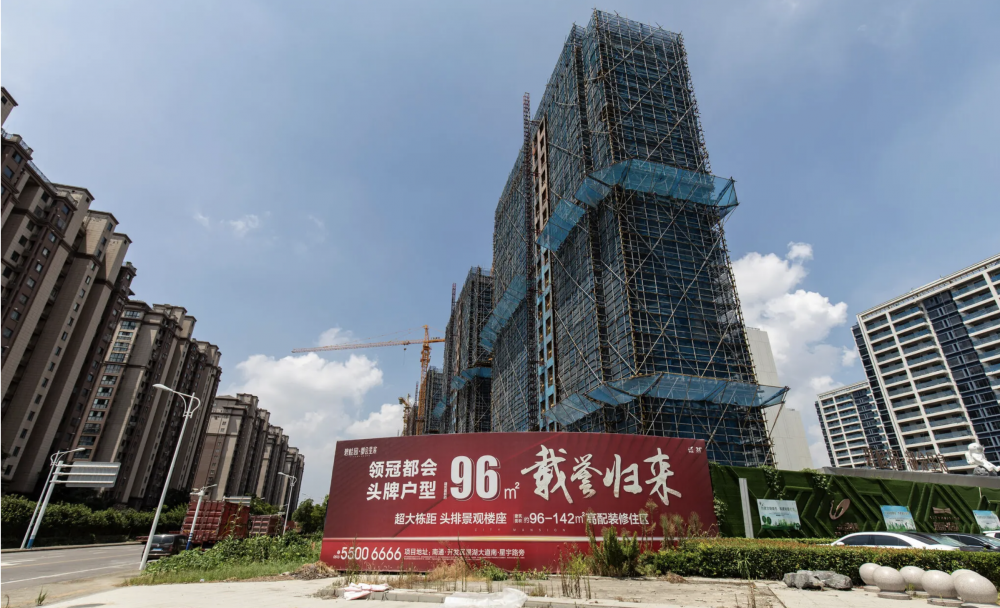
NELSON LAW – FEBRUARY 8TH, 2024
EDITOR: KIET HOA
After the Evergrande housing crisis, China’s housing market remains restless as another company is potentially defaulting on its debt. That company is Country Garden, supposedly one of the most stable among Asia’s massive real estate conglomerates.
To understand how companies like Country Garden defaulted, the structure of both the Chinese real estate market and companies should be discussed. From the top, the real estate boom is not a regular industry expansion. While typical industry expansions occur because of steady returns or technological advancements, there was no primary funding to kick-start the effort of real estate. The only source of demand for urban housing came from residents, who led certain entrepreneurs to gain traction in such markets.
However, most of these entrepreneurs did not come from wealthy backgrounds that could finance the construction of high influxes of homes and buildings, nor did many of them come from construction or architecture backgrounds. Then what did they rely on to start funding? The answer is debt –a lot of debt and equity. Many companies began taking heavy amounts of offshore debt from foreign investors who believed the companies had zero downside because China would prevent big real estate companies from defaulting.
As such, real estate companies like Evergrande ($300 billion) and Country Garden ($15 billion) were heavily leveraged on liabilities to fund their assets instead of leveraging on self-owned cash. Accounting for interest payments, these companies would have to generate consistent returns of billions of dollars just to break even.
While in hindsight, the heavy reliance on debt may be concerning, investors, banks, and offshore lenders were all expecting the heavy demand for housing to repay all debt interests within the economy. Worse, many believed that real estate in China was “too big to fail,” thinking that the Chinese Government would repay the debt and liabilities if these companies could not generate returns. Increasing equity and debt liabilities led to a mismatch in the share price of the conglomerates against the amount of return and profits they were earning. By extension, the mismatch led to a bubble in the Chinese real estate market.
In the present day, Evergrande’s default set off a domino effect that shook the real estate industry. Investors retracted their money and debtors began asking for payments, leading to Country Garden’s eventual demise. Another catalyst that kick-started Country Garden’s demise was the rise in interest rates from the US federal government, leading to many of the “low stakes loans,” skyrocketing in leverage and interest payments. Ultimately, the number of loans proved too much for a company with limited revenue generation and high operation expenses.
With $187 billion worth in liabilities, Country Garden faces financial difficulties amidst difficult macroeconomic conditions. Worse, Country Garden’s depreciating and underused assets have gradually become liabilities that continuously incur net losses year over year. For example, the company’s properties in Thailand have a capacity of 130,000 apartments with only 9,000 residents staying. Initially, Country Garden was considered “too big to fail” but now faces debt restructuring and defaulting.
Country Garden’s default as of October 18th, 2023 from offshore loans has impacted not only local residents but also global markets. The impact of the company’s default is possibly extremely prevalent and impactful to China’s current and future prosperity in terms of growth. Mainly, the default has affected the following 3 stakeholders: investors and debt holders, the government, and citizens.
Investors and debt holders have been attempting to cut their losses, with some debt holders unable to regain their funds. After the default of Country Garden, there were massive losses in both the credit and investor markets, negatively impacting confidence in the Chinese economy. Many investors believed the Chinese market had too many complications beyond the company’s business operations; examples of these complications include the political landscape and corruption hidden amongst the Chinese government, which acts as the penultimate controller of industries and domestic markets. Consequently, Singaporean investors, among many others, have begun pulling out of Chinese stocks, leading to a potential collapse in China’s private and public equity markets and slower economic development.
Domestically, the loss of confidence from global investors also led to strained public finances for the Chinese government. The retraction of foreign investors means less public finances and lower project funding, leading to a potential decline in the Chinese economy. The loss in public financing has also caused increased unemployment rates within the country, nearly doubling over the last 2 years to the point where China has stopped publishing economic data regarding employment and labor forces. Therefore, China’s real estate slump and instability were key factors in the country’s economic slowdown and may be a catalyst for a future recession.
Finally, citizens were the most affected stakeholders, as many invested in the Chinese real estate market by purchasing homes or investing in the company. The results left many citizens stranded without homes and liquidity to repurchase different assets, creating difficulties for many Chinese citizens who migrated from their rural hometowns to urban areas in hopes of gaining more opportunities. As such, many are outraged and are protesting at Evergrande and Country Garden’s headquarters, creating political instability within the country.
In short, the real-estate industry crisis has decreased overall confidence in Chinese businesses. The loss in confidence has had a prevalent impact, including catalyzing the current economic downturn and recession in China. The defaults of the real-estate conglomerates may only be the beginning of the demise of the whole industry and the Chinese economic landscape as a whole, as many companies are even more heavily leveraged within the Chinese economic market.
Country Garden’s default is a story that reflects how improper growth and heavy leverage on debt can be the company’s demise. The real estate industry of China demonstrates the importance of building and laying out a proper foundation for sustainable growth. In hindsight, defaulting was imminent for such debt-leveraged companies. Yet, we must also realize that we should make rational decisions in investing and never be inclined to believe anything is “too big to fail.”
Featured Image Source: New York Times
Disclaimer: The views published in this journal are those of the individual authors or speakers and do not necessarily reflect the position or policy of Berkeley Economic Review staff, the Undergraduate Economics Association, the UC Berkeley Economics Department and faculty, or the University of California, Berkeley in general.



